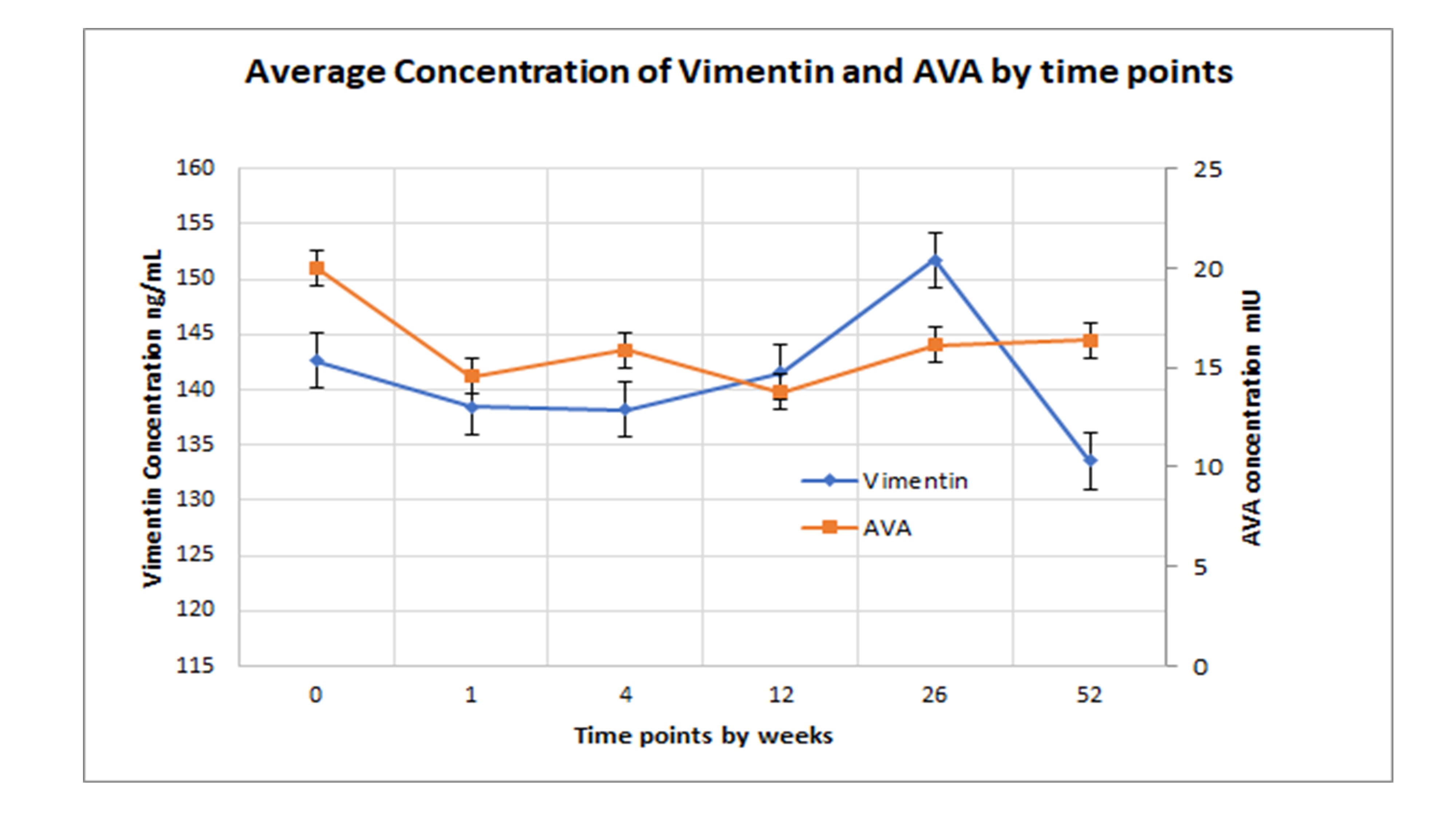Use of Anti-Vimentin Antibodies as a Possible Marker for Graft Dysfunction Following Renal Transplant, a Prospective Study
1Albany Medical College, Albany, NY, 2Molecular and Cellular Physiology, Albany Medical College, Albany, NY, 3Surgery, Section of Transplantation, Albany Medical College, Albany, NY
Meeting: 2019 American Transplant Congress
Abstract number: B66
Keywords: Antibodies, Autoimmunity, Graft survival, Kidney
Session Information
Session Name: Poster Session B: Biomarkers, Immune Monitoring and Outcomes
Session Type: Poster Session
Date: Sunday, June 2, 2019
Session Time: 6:00pm-7:00pm
 Presentation Time: 6:00pm-7:00pm
Presentation Time: 6:00pm-7:00pm
Location: Hall C & D
*Purpose: In our previously published work, we showed that presence of anti-vimentin antibodies (AVA) after renal transplant correlated with early IFTA (Interstitial Fibrosis and Tubular Atrophy). In this study, we will determine the association between AVA concentration and graft dysfunction prospectively. We hope this will result in the use of AVA as an early marker for patients at risk for IFTA post-transplant.
*Methods: Fifty-one transplant recipients transplanted at our institution from 2015-2016 were enrolled in a prospective study collecting sera pre-transplant (day of transplant), and 1 week, 1 month, 3 months, 6 months, 1 year, and 2 years post-transplant. AVA concentration as well serum vimentin concentration was determined via ELISA. AVA and vimentin concentrations were compared to multiple post-transplant metrics (2-year ΔGFR, biopsy-proven cellular and humural rejection and graft loss).
*Results: Pre-transplant serum vimentin concentration 1-year post-transplant was lower than pre-transplant levels (133.55 ng/mL + 9.95 vs. 142.62 ng/mL + 6.54). AVA concentration decreased from pretransplant (20.02 mIU + 2.04) to 1-week post-transplant (14.58 mIU + 2.83). However, this was followed by a subsequent increase in AVA by 1 year (16.40 mIU + 2.54). Post-transplant metrics were compared to AVA concentrations.
*Conclusions: AVA concentration increases during the first year following renal transplant and therefore may be a good serum marker for post-transplant function.
To cite this abstract in AMA style:
Acosta E, Divanyan T, Patel D, Jourd'heuil F, Jourd'heuil D, Lopez-Soler R. Use of Anti-Vimentin Antibodies as a Possible Marker for Graft Dysfunction Following Renal Transplant, a Prospective Study [abstract]. Am J Transplant. 2019; 19 (suppl 3). https://atcmeetingabstracts.com/abstract/use-of-anti-vimentin-antibodies-as-a-possible-marker-for-graft-dysfunction-following-renal-transplant-a-prospective-study/. Accessed July 18, 2025.« Back to 2019 American Transplant Congress

